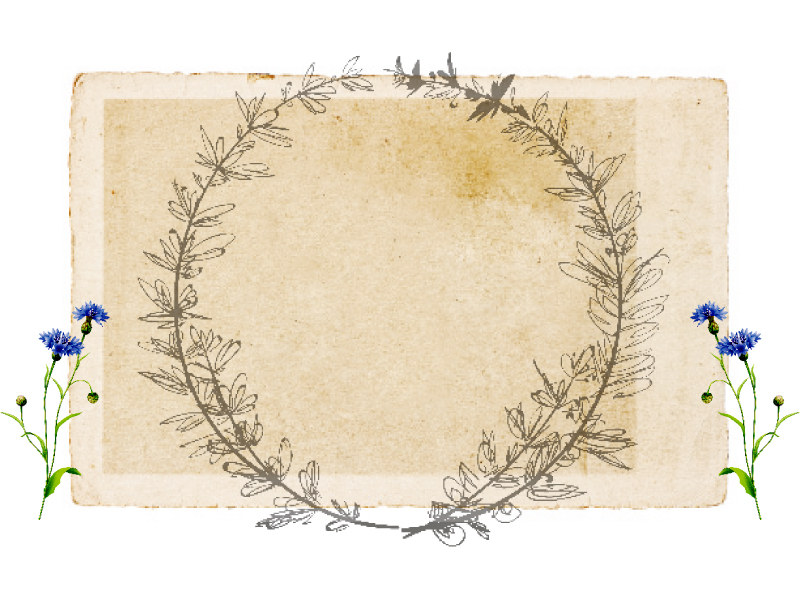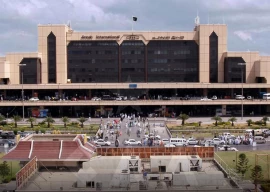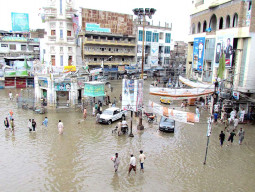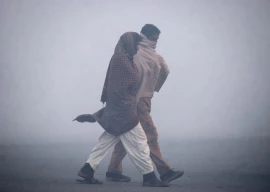
A middle-aged man and his young son go door-to-door in the Lahori Mohalla, Larkana, beckoning people to come out of their homes. The man beats the drum and sings verses by renowned Sindhi poets. His son hands out flowers to the inhabitants of every household in the neighbourhood. Spring has arrived and this is Sindh’s way of welcoming it.
Amid the chorus of Shaikh Ayaz’s verse, “Ishq asaan watt araen jein, aayo jhool bhare [Love came to me like a gardener with a bunch of flowers]”, the duo make their way along the narrow streets. “We are here to celebrate spring,” says the singer, Muhammad Juman, who is a member of the Mangahar community, famous for their classical folk music. “We have inherited this practice from our elders. We don’t force anyone. Some people pay for it, while others don’t.”
According to Juman, people from his community have celebrated the advent of spring in this manner for centuries. But he fears the practice is waning with each passing year. Reminiscing the good old days, he said, “Soon after the advent of the spring season, we would visit the well-off families, writers and politicians with flowers in our hands and singing poetry relating to this season.”
Dr Adal Soomro, a noted Sindhi poet who has a PhD in Sindhi literature spoke about Shaikh Ayaz’s poetry. “In his poetry, Shaikh Ayaz has used the word ‘Araen’ for the gardeners who used to grow roses and distribute them among people in spring,” he said. “This practice is no longer found in most towns of Sindh,” he lamented.
Dr Soomro explained that people of the Manganhar community as well as others played a great role in promoting this practice by visiting houses in their neighbourhoods. “Those were the days when people were prosperous and there was complete peace in Sindh. Now, it seems autumn and spring have got mixed up. This old tradition can only be revived with freedom, peace and harmony in the province,” he said.
Masroor Pirzado, a young Sindhi poet, reasoned that the spring season once symbolised ‘romance and prosperity’, but the ground realities have now changed. Quoting the poetry of another Sindhi poet, Haleem Bagi, who called himself the ‘rebellion’, Pirzado said, “Gulan je mausam kaliyoon na aandiyoon, bahar aanda putan ja lasha [Spring did not bring with it fragrance, but bodies of our loved ones].” He decried that where the law and order situation was so precarious, the traditional celebration of the spring season was not desirable.
Imdad Hussani, another creative Sindhi poet and writer, said that social disintegration had not only effected the traditional celebrations of the spring season, it had also caused Sindh to lose its image of co-existence, tolerance and love. “I still remember the days when these people, who we used to call Manganhar Fakir, would distribute flowers to welcome the season.” Hussaini recalled how Muslims, Hindus, Shia and Sunnis partook in each other’s religious festivities and other social events without any discrimination. But they now consider each other as the enemy, he said. “People are now in isolation. Only social integration, combined with peace and prosperity, can bridge their differences once again,” he remarked.
Published in The Express Tribune, March 3rd, 2015.























COMMENTS (2)
Comments are moderated and generally will be posted if they are on-topic and not abusive.
For more information, please see our Comments FAQ